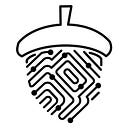The start of Early Catch at #TeensInAI19
On the 19th of August our team, Early Catch, began the TeensInAI accelerator. Before these two weeks we had never met before and we were introduced to our team on day one: Aoife aged 18, Jai aged 17 and Alessio aged 16.
The problem we focused on was breast cancer diagnosis and how different methods to produce a diagnosis can be painful and uncomfortable. There are a few types of biopsies taken if there is still a concern that the patient might have cancer after their first x-ray. These biopsies include FNA, core and surgical biopsies. Currently core and surgical biopsies are used the most as they contain a larger sample that is easier to read; we found lots of groups such as Google DeepMind and universities also tackling this problem using these core biopsy samples. However, our team decided we didn’t only want to focus on detecting cancer but also improving patient care during the process of their diagnosis and treatment. After lots of research, we found that although core and surgical biopsies are more accurate and easier for doctors to read they can be more invasive. We believed that a cancer diagnosis should not cause unnecessary stress. Removing the most painful procedure would increase patient wellbeing and give everyone a smoother journey whether or not they do end up being diagnosed with cancer.
Our solution to this was creating a model that reads FNA samples accurately to risk assess whether the person has cancer. We trained our model made in python with images that were 50 pixels by 50 pixels. The user would enter the image and a probability of the likelihood of them having cancer would be produced. Our model was only a proof of concept as we trained it with core biopsy sample images as the FNA samples were high security and very hard to access.
In the future we want to partner with labs in this field; this is so we can learn more about how we can help cancer patients and get access to the data we need. So far we have been in contact with Chris Bakal, Miles Paying and Jessica Morley for advice as they have experience in this field. So far we have organised a visit to the institute of cancer research, a skype call with Jessica and are still organising a visit to NHS X.
Creating our project wasn’t as straight forward despite our much clearer plan now. We started with tackling climate change; researching pollution, waste and forest fires. All of us felt that this was a big issue and there were so many ways to go about solving it. Next we looked into homelessness. This was also an issue we all knew was relevant as we passed several on our journey to the accelerator every day. After speaking to some homeless people in person and going to a library in which many go to charge their phones we found out that this problem would be difficult to solve with tech because of the lack of data. There were also so many reasons people were homeless and it was not documented thoroughly enough for us to decide which type of homelessness we should focus on.
Eventually we settled on breast cancer diagnosis, as I mentioned earlier. Once we had decided on this we took on individual roles to bring our project forward. Jai, our CTO, worked with a few amazing mentors to create our model. It was only a proof of concept as we trained our model on core biopsies samples not FNA samples. The model would complete a risk assessment and output the probability of someone having cancer based on the image inputted. At the start of the week Jai had never used machine learning to create a model; however, by the end of the week he was able to use it for a range of projects. These projects included determining whether an image has a cat or dog and our project for the accelerator: determining whether a core biopsy sample was cancerous or not. He was also able to visually represent large amounts of data and used linear regression to predict patterns which are skills many companies look for today when recruiting software developers.
Our CMO Alessio also developed a wide range of skills: marketing, public speaking and negotiating. He was able to communicate confidently and respectfully with a wide range of people; including people from cancer patients to representatives of organisations. As well as this he worked on creating and managing professional social media accounts to promote and represent our company.
The role I took on was CEO. As well as organising the team and keeping track of everyone’s progress I reached out to different professionals. This was to make sure we had the correct knowledge and understanding of the problem so we could tackle it in an effective way. Some of the people I reached out for advice from was Jessica Morley, Miles Payling and Abena who just finished her biomedical degree at Queen Mary’s University. They all gave us useful and eye opening advice that helped us when developing out product.
Overall, we all enjoyed working on this project as a team and hope to keep working on it and develop it further with the people we have spoken to. We are all really grateful to Elena, Peter and all the mentors who made this accelerator possible and for all the work they put in. Hopefully more teenagers will have the opportunity to work on projects that will change the world and develop skills the same way we have.
By Aoife Power from Early Catch
